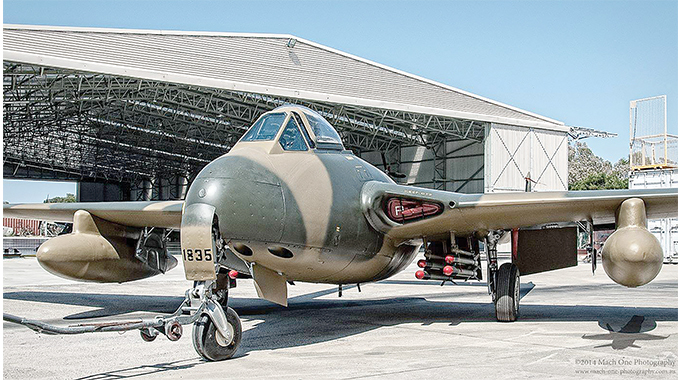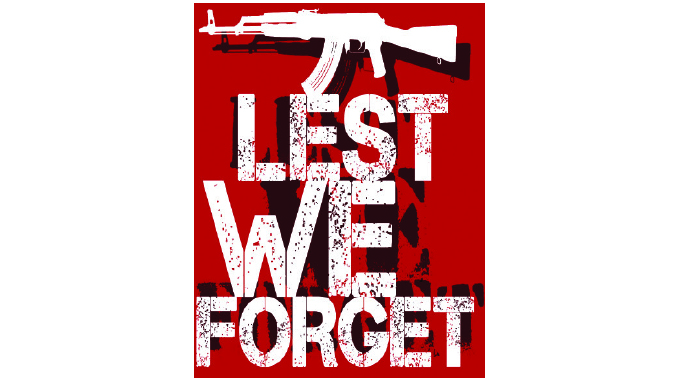
The Sunday News

WE continue our interview with former freedom fighter Cde Charles Ndebele pseudonym Cde Victor Gasela. Today Cde Ndebele continues his account of the armed struggle by telling our Assistant Editor Mkhululi Sibanda (MS) about how they battled the Rhodesian Airforce at Foxhole in Zambia where notorious Rhodesian combat pilot, Chris Dixon code-named Green Leader was brought down. Below are excerpts from the interview. Read on . . .
MS: Last time you were still talking about how you were preparing for the Rhodesian aerial attack. Let’s resume the conversation from there.
Cde Ndebele: We were quickly given more ammunition and we began marking firing positions. There was no time to dig trenches and fortify our positions.
Like I said last time the Rhodesian aircrafts flew towards Foxhole where they started bombing the evacuated camp. We had left a few comrades there such as Reuben, those were manning communication equipment. Those comrades were positioned underground. The planes then located our positions and started attacking us. A fierce battle ensued and because we were well-equipped it was the day the Rhodesians met their match.
We were bombed by the jet fighters and harassed by the helicopters. The anti-air comrades did a good job and it was during that attack that Green Leader was shot down. Green Leader had been in charge of many Rhodesian operations and to us, that was a big victory. The day belonged to us because we gallantly battled the enemy despite that it was using its aircrafts. Credit should also go to our camp commander, Silas Chenjerai.
He commanded us like a true general. He led from the front. Although young compared to other commanders we had at that time, Chenjerai was a very brave and astute guerilla. That day ZPRA stood its ground against the Rhodesians, we went pound for pound with the enemy and they were forced to withdraw.
After that battle I was one of the guerillas who were redeployed to Mlungushi to run a training reconnaissance programme for the comrades there. Our comrades who were at Mlungushi were being mainly trained by the Zambian Defence Forces although we had our instructors there. Training at Mlungushi was not for guerilla warfare but conventional. A whole brigade was being assembled at Mlungushi.

A Rhodesia Airforce plane
MS: Then take us through what was happening at Mlungushi.
Cde Ndebele: We got there at night and we were surprised to find out that Mlungushi was a proper military facility where there were beds. As people used to living in the bush we were very uncomfortable when told to sleep in a properly constructed structure. As a guerilla sleeping in a room or house was an abomination. To us the situation there was very relaxed and that camp was situated near a lake.
The land was cleared although there were trenches there. Still that bothered us. I spoke to Cde Jabu one of the comrades we had moved together from Foxhole and we agreed that we could not stay in a building as that was not safe. Then the following morning our fears were confirmed.
MS: You mean you were attacked soon after your arrival?
Cde Ndebele: The following day while trying to come to terms with the new set-up at the camp, JB said to me let’s get out of the barracks. After a few minutes while outside we heard the sound of aircrafts. They were flying at low altitude and within minutes they had started bombing the camp. As people who had arrived the previous night we did not know the set-up of the camp. Others dived into the trenches and we had to take a certain direction to get out of the killing bag. We were very lucky to break out of the enemy fire.
We spent the day at the villages and only returned to the camp in the evening. Remember we had arrived at Mlungushi the previous night and no paper work had been done on us. Our coming there was then formalised and we were also armed with AK-47s. As if that was not enough the Rhodesians returned the following day and bombed the camp.
That was to mark a series of bombings on Mlungushi by the Rhodesians.
MS: Why do you think the Rhodesians were concentrating on Mulungushi?
Cde Ndebele: At that point we were being bombed maybe twice a day and that was because the Rhodesian intelligence system had picked up information that we were building a brigade there. However, every time they were coming we would have picked up information that they were coming.
That was because at that point ZPRA had evolved into a modern force that had infiltrated the enemy ranks. We had spies within the Rhodesians who would update us about the intentions of the enemy such as launching attacks on our camps. We could get the information beforehand. Also the camp was well-equipped.
The force that was at Mlungushi was a proper conventional army with battalions. There were four battalions there with its commanders having gone to military academies such as at Kohima in Zambia and overseas countries like the Soviet Union. Those battalions were reinforced with attachments ranging from military engineers, medical corps, reconnaissance, artillery, and so on.
All that was part of the Zero Hour Strategy where it was envisaged that tanks would roll into Rhodesia and troops pouring in for a daring assault on the enemy. At that time ZPRA had also trained its pilots in Ethiopia as it had established an airforce wing. The artillery especially the anti-air defence was in the hands of capable cadres.
I remember during the bombings by the Rhodesians on Mlungushi, we had Cde Gore, a comrade who came from Beitbridge District. The way he handled the Zegue, an anti-air weapon during those tense moments by firing single shots on the Rhodesian aircrafts was marvellous. His actions did not go unnoticed as even senior commanders were charmed by his antics.
I remember the commander of the First Battalion, Cde Madliwa (Major-General Stanford Khumalo) even came to look for him. Later on battalions were then moved from Mlungushi and deployed along the Zambezi River.
MS: Which was your battalion?

Cde Ndebele: I was in the second Battalion that was commanded by Cde Zuba. The first was under Madliwa and that was deployed near Kariba. It was the one that was attacked by the Rhodesian forces and that battle took five days. The second Battalion was deployed at DK facing Binga. If the Zero Strategy had been put in place we were supposed to move to create a corridor in the Binga and Lupane areas. When the ceasefire was announced we had already deployed along the Zambezi River.

The devastating 1978 “Green Leader” raid on Zambia (Picture courtesy of Zenzo Nkobi)
MS: While deployed there what were you guys doing, I mean were you involved in contacts with the Rhodesian army?
Cde Ndebele: As for us in the reconnaissance unit we were very busy as there was a need to check the course time and again. In fact by the time of the ceasefire the advance party was already in Rhodesia, they had crossed the Zambezi River to prepare routes for the battalion. Like I said these battalions were armed with all sorts of weapons.
As a reconnaissance unit we had created an outpost where we were based. We were not dug in with the rest of the battalion, we had a separate base with our commander being Cde Trust Gubudu who had been a teacher before he joined the armed struggle. We had to carry our reconnaissance missions because reconnaissance is a continuous operation.
This is because the situation changes any time so as a soldier you cannot assume that what you saw the previous day is still the same. Therefore, we will go on a mission and come back and submit our reports at the battalion headquarters.
MS: How big was your reconnaissance unit?
Cde Ndebele: We were a platoon and there were engineers who were embedded to our unit. A ZPRA reconnaissance section unit was made up of five comrades and it was called a squad.
Reconnaissance is a specialist military task and in normal circumstances, they are not a fighting unit per se but they go out to gather critical information on the enemy such as its strengths and weaknesses.
A reconnaissance squad should avoid at all costs of engaging the enemy in combat no matter how tempting it would be to fight them. This is because at the end of the day, the objective would be to gather intelligence on the enemy which would be useful in an operation being planned.
To be concluded next week with Cde Ndebele narrating how he survived an attack on his unit by Selous Scouts and how they dealt with ZPRA units that were refusing to move into Assembly Points. Cde Ndebele was based at Gwayi River Mine near Dete in Hwange District.



